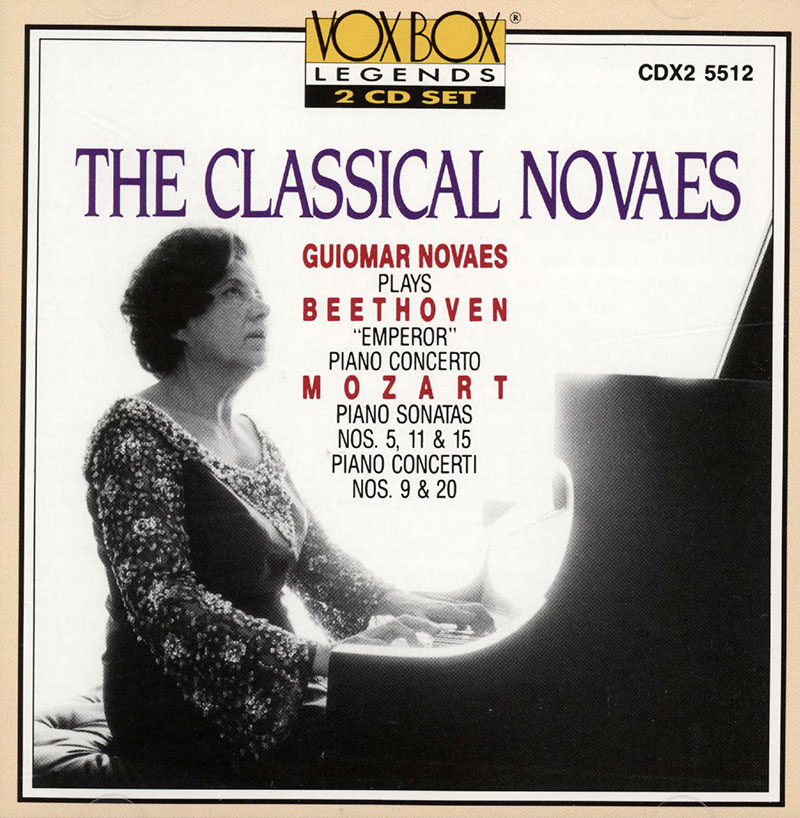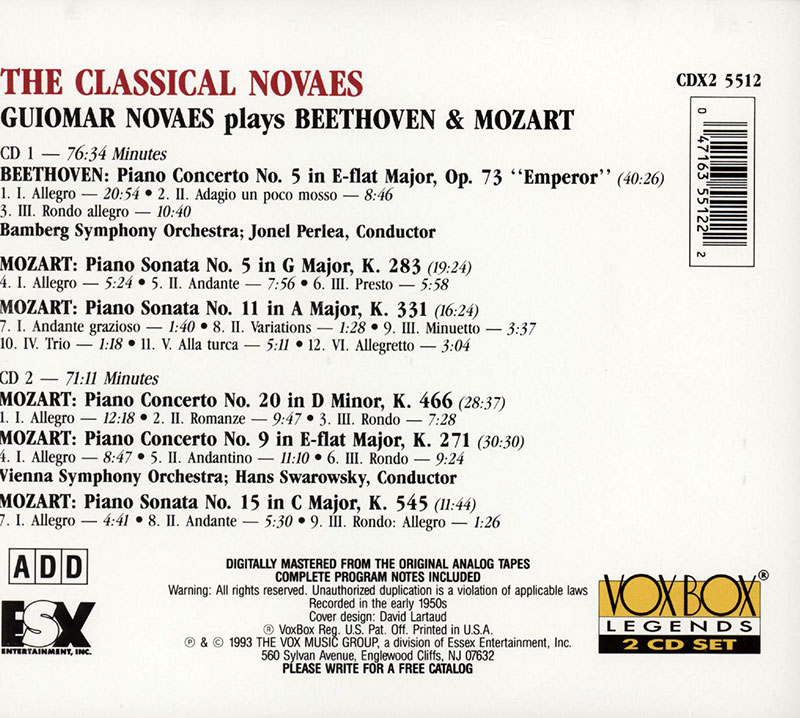Logowanie
OSTATNI taki wybór na świecie
Nancy Wilson, Peggy Lee, Bobby Darin, Julie London, Dinah Washington, Ella Fitzgerald, Lou Rawls
Diamond Voices of the Fifties - vol. 2
Tylko 1000 egzemplarzy!!!
DVORAK, BEETHOVEN, Boris Koutzen, Royal Classic Symphonica
Symfonie nr. 9 / Wellingtons Sieg Op.91
nowa seria: Nature and Music - nagranie w pełni analogowe
Petra Rosa, Eddie C.
Celebrating the art and spirit of music - vol. 3 - Pure
warm sophisticated voice...
Peggy Lee, Doris Day, Julie London, Dinah Shore, Dakota Station
Diamond Voices of the fifthies
Tylko 1000 egzemplarzy!!!
SAMPLER - STS DIGITAL, Buddy Tate, Milt Buckner, Walace Bishop
Jazz Masters - Legendary Jazz Recordings - v. 1
proszę pokazać mi drugą taką płytę na świecie!
Chesky! Niezmiennie perfekcyjny
Winylowy niezbędnik
ClearAudio
Double Matrix Professional - Sonic
najbardziej inteligentna i skuteczna pralka do płyt winylowych wszelkiego typu - całkowicie automatyczna
BEETHOVEN, MOZART, Guiomar Novaes, Bamberg Symphony Orchestra, Jonel Perlea
Piano Concerto No. 5 Emperor / Piano Cocnertos 20, 9, 15

- Guiomar Novaes - piano
- Bamberg Symphony Orchestra - orchestra
- Jonel Perlea - conductor
- BEETHOVEN
- MOZART
Guiomar Novaes Plays Beethoven and Mozart
Seeing the name Guiomar Novaes makes me feel like a kid again, blowing my allowance on Everests and Vox Boxes and Vanguards and the like (Serious Record Collector's Disease can strike early and hard—parents, know the telltale signs!). By the time I hit puberty (the verb is entirely appropriate) I had acquired several of the Brazilian pianist's Chopin discs for Vox, although I did so more by happenstance than by design. And then I was a child no more, and it was time to put away childish things. Novaes and her discographie companions were filed away with the rest of my immaturity as I graduated to bigger allowances, and bigger labels and artists. A few years ago I remember actually sneering at an acquaintance's suggestion that we listen to Novaes's recordings of a few Chopin Nocturnes. "How good could she be?' ' I asked him and myself. I now eat my words, because Novaes is very good indeed. These three sets were both a trip down Memory Lane and a voyage into new territory. I knew about her close association with Chopin's music, but I didn't know to what extent she made her mark in Romantic and Classical repertoire. "The Classical Novaes" is Exhibit A: consider her serene, stately "Emperor" Concerto, a performance which doesn't deign to impress the listener with mere technical display. Also, consider her Mozart, a perfect blend of clarity and emotional involvement. This is music from the Classical period played with a Romantic sensibility, but one that doesn't glorify the artist at the expense of the art. With Novaes, Beethoven and Mozart came first. The other two sets are similarly impressive by means of similar virtues. Novaes never hurries, never pounds, and never distorts, and while it would be easy to find more viscerally exciting or technically mind-boggling performances of these works, it would be hard to find ones that are classier or more poised. The Grieg concerto is a particular highlight: this is an uncommonly serious reading, one that blows the powdered sugar right off the snow drifts, and frankly, one of the best that I have ever heard. As for the Chopin, it goes straight to the listener with its intimacy. There's nothing special about Novaes's fingers, particularly in the Études and in the concerto, but the playing goes to the heart. And those Nocturnes! There are several great recordings of these works, but Novaes's are the ones that makes the recording process itself disappear, with her mellow colors and seamless line. The orchestral accompaniments are passable and better than I expected, particularly when Perlea is on the podium. The 1955-ish sound ranges from dim (the Chopin sonata) to quite good (the Nocturnes), although one would expect some distortion in the concerto recordings. Vox has given us better-looking and better-made booklets than in the past, and the program notes are surprisingly intelligent and thorough, considering the price you'll pay for these sets. Oh yes, the price. Vox Boxes, usually go for $5-6 per disc, which means that you can pick up all three of the sets, plus Vox Box CDX2 5501, which includes some more of Novaes's concerto recordings (Beethoven 4, Chopin 2, and Schumann, all conducted by Klemperer) and some treasurable encores, for about the cost of a routine visit to the dentist. Skip a visit, eat fewer sweets, floss more often, and buy these discs. They would make great presents for old and new CD collectors too. -- Raymond Tuttle, FANFARE





























